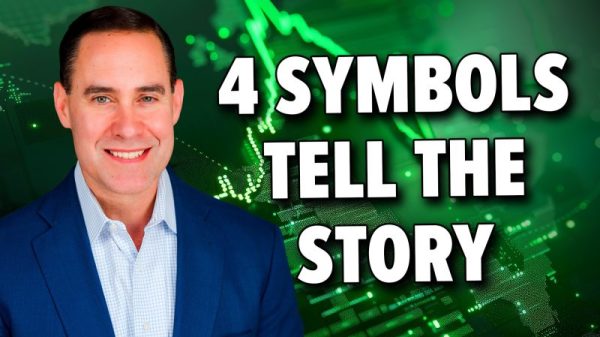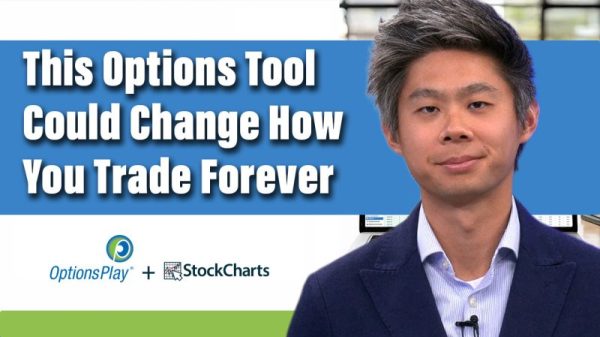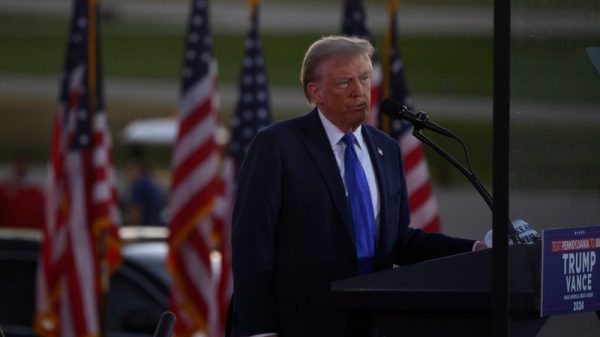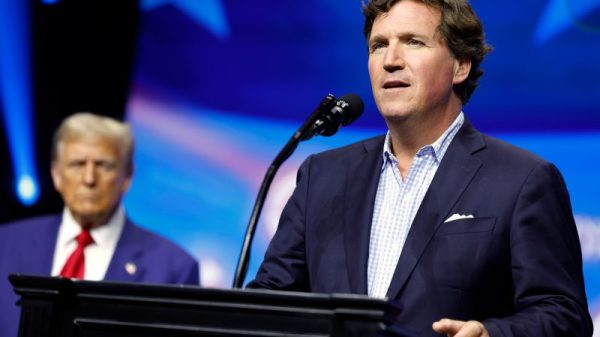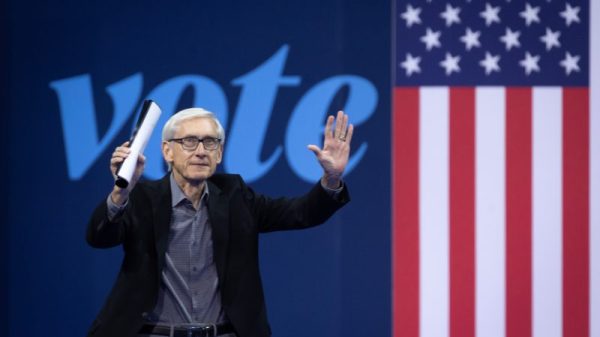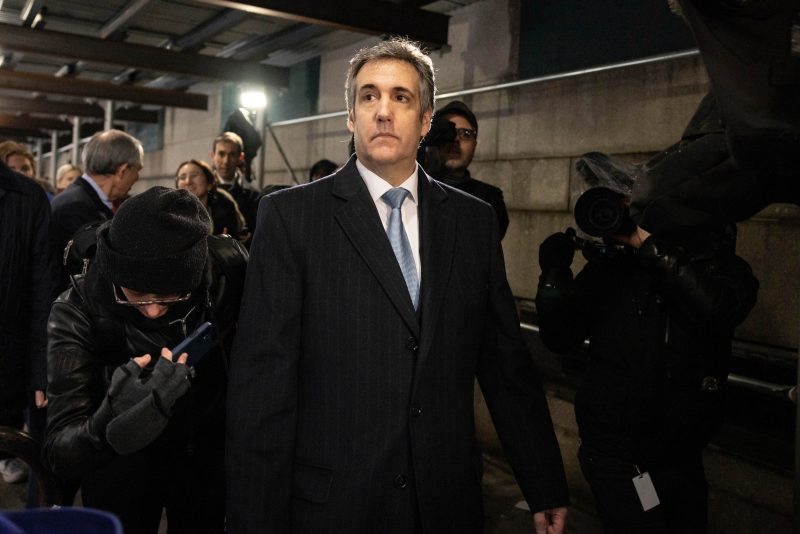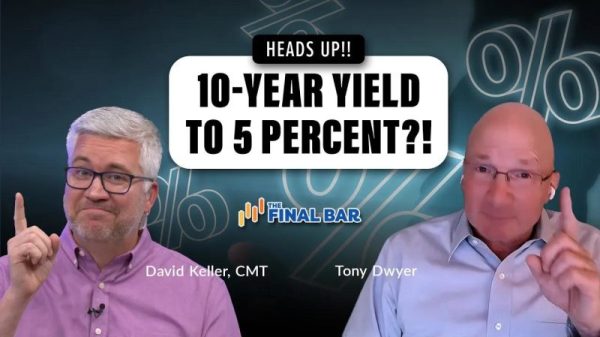When Michael Cohen takes the stand in the coming days as the star witness in his former boss’s criminal trial, it will mark the climax of his transformation from Donald Trump’s bullying defender to one of his loudest public enemies.
As Cohen tells and retells the story — in congressional testimony, television interviews, two books, a popular podcast and assertions to the judge in his own criminal case — he is a man on a quest for redemption. After years spent serving Trump, he says he’s ready to serve his country. A confessed liar, he says he’s now willing to risk everything for the truth.
“I am the canary in the coal mine for millions of Americans mesmerized by Trump,” Cohen said on the debut episode of his podcast, “Mea Culpa,” expressing his hope that speaking out would be a “way to right some of the many wrongs I committed at his behest.”
Cohen’s penance goes beyond his weekly podcast or his anti-Trump memoirs, “Disloyal” and “Revenge.” He testified against the former president before multiple congressional committees in 2019. At Trump’s civil fraud trial in New York, which concluded in February with a $454 million judgment that is now on appeal, Cohen was a key witness, deemed “credible” by the judge.
But as he prepares to serve as a linchpin in the Manhattan district attorney’s criminal case against the former president — testifying that Trump ordered a hush money payment to an adult-film actress to preserve his chances of winning the 2016 presidential election — America’s most famous ex-fixer remains a divisive figure, even among partisans on the Trump-loathing left.
Prosecutors on Monday were clear with jurors about the moral failings of their star witness, with senior counsel Matthew Colangelo acknowledging that Cohen is a liar and convicted criminal — but stressing that “the evidence will also show why you can credit Michael Cohen’s testimony despite those past mistakes.” Trump’s defense attorney Todd Blanche, meanwhile, told the jury that Cohen is “obsessed with President Trump” and he “rants and he raves about” him.
Whether the public buys Cohen’s tale of self-reform could have implications not only for the outcome of Trump’s first trial, decided by a jury of 12 New Yorkers, but also for Cohen’s standing and influence afterward. He has long talked about his desire to hold elected office, and last summer mused aloud about running for Congress as a Democrat.
Cohen has, of course, been castigated at every turn by elected Republicans and by Trump, who has called his longtime personal attorney a “serial liar” and “rat.” For years, the former president has directed a level of bile at Cohen that he reserves for those he perceives as his worst enemies, testing the limits of his criminal trial’s gag order just this month with social media posts denouncing his former attorney as a “felon” and “sleazebag.”
But even some on the left offer wary assessments of the man who once said he would “take a bullet” for Trump.
“Look, I think his testimony is important. I think his willingness to speak out and to incur the wrath of Trump world is significant,” said Rep. Adam Schiff (D-Calif.), a former federal prosecutor who chaired the House Intelligence Committee when it met with Cohen in 2019.
Schiff said Cohen’s admirers shouldn’t lose sight, however, of the fact that he turned onto his new path only after Trump abandoned him, leaving Cohen to his fate when he faced criminal charges in 2018. “He would still be a loyal Trump soldier if Trump hadn’t been willing to discard him like a piece of bad fruit,” Schiff said.
Cohen declined to comment, saying he would not be giving interviews during the trial.
An April 2023 Economist-YouGov poll found that 48 percent of Democrats viewed Cohen favorably, while 31 percent viewed him unfavorably and 21 percent had no opinion. More independents and Republicans viewed him unfavorably than favorably.
Especially among the most liberal voters and activists, Cohen’s persistence in weathering Trump’s attacks have made him a clarion voice of the resistance, speaking truth to power with a thick Long Island accent.
“My wife and I will be watching a show, and we’ll see a character that is miserable and pathetic in the beginning of the show. And I’ll say, ‘Watch, this guy is on a redemption arc,’” said Majid Padellan, better known as the left-wing influencer Brooklyn Dad Defiant to his 1.3 million followers on the social media platform X. “I think you could kind of say that about Michael Cohen.”
Padellan, who has appeared on Cohen’s podcast, said he is convinced Cohen is a “standup guy” who is doing the right thing at great personal cost.
“Say what you will about him, but there are very few people who are willing to publicly go on the record against a very vengeful guy like Donald Trump,” Padellan said. “And nobody knows how vengeful Donald Trump is better than Michael Cohen, who was often the instrument of Trump’s vengeance.”
When Trump was elected, Cohen had been working as his attorney for a decade, a job in which he became notorious for bluster and threats — often directed against unsympathetic journalists — on his boss’s behalf.
He also took pride in solving Trump’s problems, a role he carried into the presidential campaign. When the adult-film star Stormy Daniels threatened to go public in the fall of 2016 with her story about a sexual encounter with Trump, Cohen sprang into action, buying her silence with $130,000 of his own money. Prosecutors say he was later reimbursed by Trump, who denies having sex with Daniels.
But when Trump went to Washington, Cohen found himself marginalized. He didn’t get a White House job. In April 2018, the FBI raided Cohen’s office, apartment and hotel room, seizing records as part of an investigation into his hush money payments to Daniels and another woman who claimed to have had an affair with Trump. The same month, Trump appeared to distance himself from his former fixer, telling Fox News that Cohen had managed only “a tiny, tiny fraction” of his legal work.
It wasn’t long afterward when Cohen met Tom Arnold, the actor and comedian best known for his role on the 1990s sitcom starring Arnold’s ex-wife, Roseanne Barr.
Arnold — who was on a largely fruitless hunt for incriminating evidence to use in a Viceland series, “The Hunt for the Trump Tapes,” that aired later that year — introduced himself to Cohen at the Loews Regency Hotel on Park Avenue in New York. They exchanged phone numbers, according to Arnold, and Cohen confided that he was on the fence about whether to turn state’s evidence.
“He was just back and forth. He wanted Trump to pay for his legal fees, he wanted this or that. He wanted to stay good with Trump,” Arnold recalled in an interview. With the hard-earned wisdom of his four marriages, Arnold said, he gave Cohen some advice. “I said: ‘This is a terrible, toxic relationship, you and Trump. And you’ve got to break up.’”
Cohen denied that Arnold’s input weighed in his decision-making.
“Tom Arnold played no role in my decision to break with Trump,” he wrote in a text message to The Washington Post. “As I have repeatedly stated, that decision was done for my wife, daughter, son and the country.”
(Arnold was not the last faded figure of Hollywood Cohen would encounter on his personal journey, but their relationship was perhaps the oddest: The pair communicated sporadically over the next two years, including a 2019 phone call, which Arnold recorded and then leaked to the Wall Street Journal, in which Cohen claimed he hadn’t committed some of the crimes to which he pleaded guilty in federal court. A legal adviser to Cohen at the time said he “meant no offense” by the recorded comments.)
In August 2018, Cohen turned himself in to the FBI and pleaded guilty to tax evasion, making false statements to a bank and campaign finance violations. In November 2018, he also pleaded guilty to lying to Congress during his 2017 testimony about the extent of Trump’s business dealings in Russia. He was sentenced to three years in prison and told to pay nearly $2 million in fines, forfeiture and restitution.
Before he went into lockup, Cohen made a dramatic appearance before the House Oversight Committee in which he sparred with Republicans and denounced the man he had spent 12 years defending.
“My loyalty to Mr. Trump has cost me everything,” he said. “… I will not sit back, say nothing and allow him to do the same to the country.”
Cohen ended up spending about a year in prison, serving the remainder of his three-year sentence at home. He started recording and broadcasting “Mea Culpa” while still under home confinement. In the first episode, he interviewed the actress Rosie O’Donnell, a Trump antagonist who had written a kind letter to Cohen while he was behind bars.
Cohen talked about how he had wept over O’Donnell’s letter, describing it as a “kick to the gut” and saying he “finally understood … just how much I had helped [Trump] to hurt people, yourself included.”
The exchange set the tone for future episodes of “Mea Culpa,” which evolved into a distinctive blend of anti-Trump commentary and life-coaching sessions with a rotating cast of celebrity guests.
“Let me ask you a question: How do you feel?” Henry Winkler, who a few years earlier had performed a mocking impersonation of Cohen on “The Late Show,” inquired during his appearance on the podcast in November. The 78-year-old actor praised Cohen for making positive use of his negative experiences.
“I need you to take a moment to reflect,” he told Cohen, ordering him to “write down the word, ‘pride,’ in red, and put it up on the mirror where you comb your hair, so you can see it every day.”
Cohen demurred, saying his wife would not allow sticky notes on their mirrors.
Robert Bies, a professor at Georgetown University’s McDonough School of Business who studies leadership and the rehabilitation of disgraced public figures, said Cohen’s path bears the classic signs of a “redemption tour” involving what Bies and his fellow researchers have categorized as the “three R’s”: remorse, rehabilitation and restoration.
That path could culminate with Cohen’s testimony against Trump in the hush money case, Bies said, if Cohen is restored in the public eye by virtue of a convincing performance on the witness stand. But even if that happens, Bies acknowledged, it is unlikely Cohen will ever shed his retinue of doubters.
“I believe in the possibility of change,” Bies said. “There are other people who don’t want to believe that.”
Skepticism of Cohen may run particularly deep in New York. Not unlike his former boss, Cohen is a familiar and frequently unloved figure in the Big Apple, whose residents have observed his previous incarnations as a 2003 Republican city council candidate, taxi medallion magnate and stalwart Trump lieutenant.
When Cohen said in August he was considering running for Congress as a Democrat, possibly mounting a primary challenge to incumbent Rep. Jerry Nadler in Manhattan, some thought he had taken his road to redemption a bridge too far.
“He is a reprobate,” said New York State Assembly member Linda Rosenthal, a Democrat whose district includes the Upper West Side and parts of Hell’s Kitchen and who said Cohen was “eminently unqualified to hold any public office.”
Cohen’s penitential acts and statements are “between him and his God,” Rosenthal said. “If he feels the need to clean his soul of all the dirty deeds he did with the former president, you know, go ahead. And maybe that makes [Cohen] feel better. It does not make the general public trust him.”
Even judges, of whom Cohen has gotten to know a few in recent years, have offered conflicting views of his credibility. New York Supreme Court Justice Arthur Engoron, who presided over Trump’s civil fraud trial, wrote in his decision that he believed Cohen “told the truth.” The remark delighted Cohen, who in an interview on MSNBC directed viewers to the page in Engoron’s ruling that mentioned him.
Things didn’t go quite so well last month, when a federal judge denied Cohen’s request for early release from ongoing court supervision after his prison sentence.
Judge Jesse M. Furman noted that Cohen had “repeatedly and unambiguously testified” during Trump’s civil trial “that he was not guilty of tax evasion and that he had lied under oath” when he pleaded guilty several years earlier. The situation gave rise to two possibilities, Furman added: Either Cohen had perjured himself when he had accepted responsibility, or he had perjured himself later when he denied it.
An attorney for Cohen disputed Furman’s characterization afterward, saying in a statement that “defendants often feel compelled to agree to coercive plea deals under severe pressure. That is exactly what happened to Mr. Cohen.”
Cohen will soon return to yet another courtroom, testifying in the first criminal prosecution of a former president. His role has no exact historical precedent, though there is a person who may understand better than most what Cohen is going through.
“Michael has had his own Rubicon he’s had to pass,” said John Dean, 85, the former White House counsel who became a key witness against President Richard M. Nixon and other top administration figures in the Watergate scandal.
Dean, who pleaded guilty to obstruction of justice for his role in the coverup and served a reduced sentence in exchange for cooperating with prosecutors, was, like Cohen, disbarred. In the years after Watergate, he devoted himself energetically, like Cohen, to talking and writing about his experiences.
Unlike Cohen, Dean waited until after the cases in which he was a witness had run their course before going on the public speaking circuit. If there is one thing that worries him, Dean said, it is that Cohen’s voluminous rehashings of his redemption story might become fodder for defense lawyers who want to pick apart his statements at Trump’s trial.
“I think he’s going to be a powerful witness. He has a lot of charisma. He’s got no motive to lie. He’s smart,” Dean said. “His greatest weakness is the fact he’s talked so much about this.”
Emily Guskin and Devlin Barrett contributed to this report.








